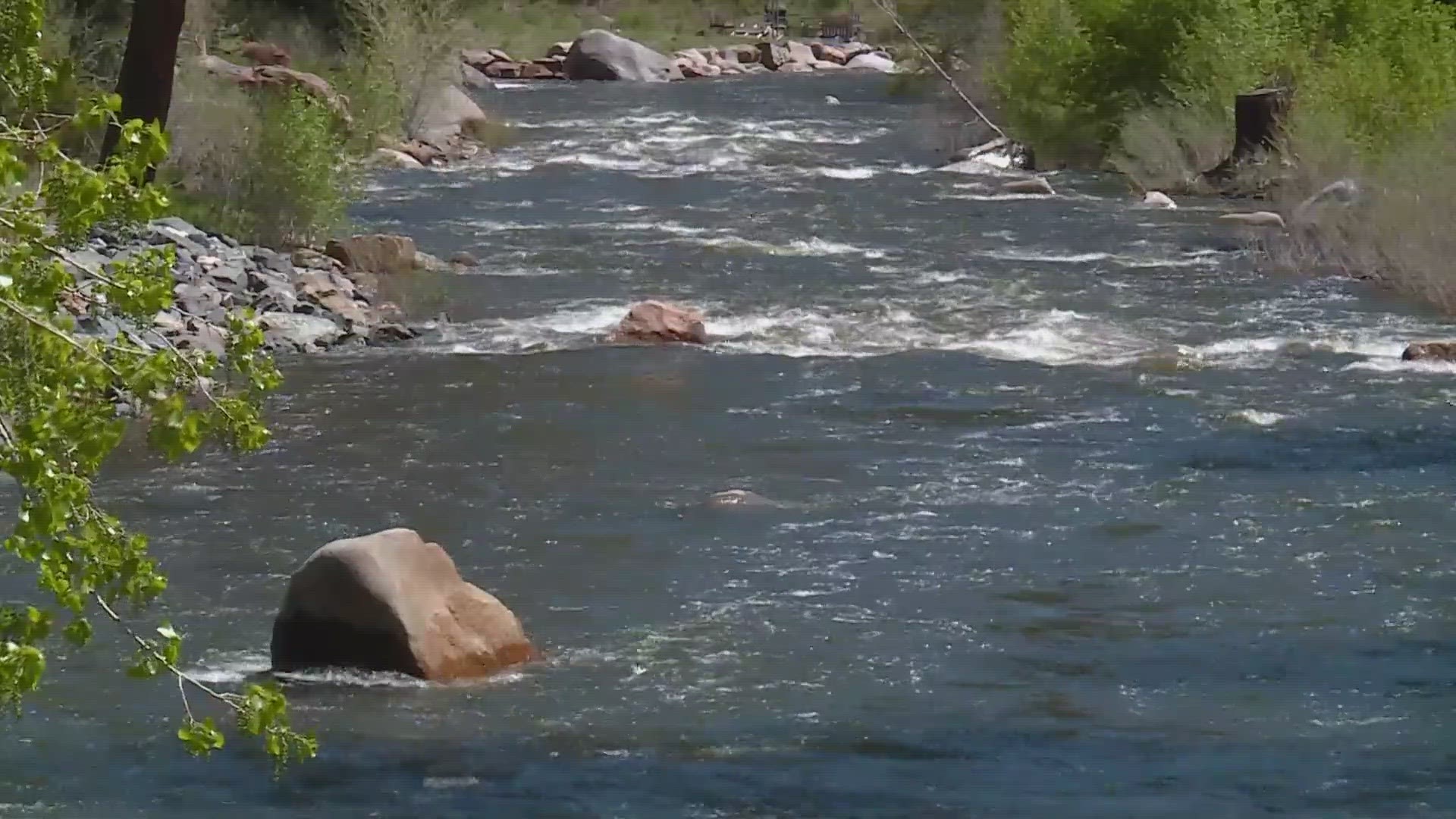COLORADO, USA — Colorado has been hit by the same storm systems that slammed California – back-to-back storms known as atmospheric rivers have moved through the western U.S. since Jan. 31.
Think of an atmospheric river that's similar to a river on the ground except it's thousands of feet in the air – and instead of being made of water, it’s made of water vapor.
They form when a semi-permanent high-pressure system sometimes called the subtropical high or Pacific high, churns clockwise in the east Pacific. While a low-pressure system to the north called the Aleutian Low spins the air counterclockwise.
That creates this conveyor belt of focused moisture in between.
And when that river of moisture runs into the mountains on the West Coast of the U.S., it rings out the moisture as precipitation.
The atmospheric river usually stays mainly intact as it moves towards Colorado but most of the moisture is already gone. The lasted atmospheric river only brought 1-2 inches of precipitation to the mountains in southwest Colorado Tuesday through Wednesday while California got 10-12 inches from the same atmospheric river a few days prior.
Of course, since it’s so cold in Colorado, the 1-2 inches of precipitation came in the form of big snow. Some mountain passes in the San Juan's measured 12 to 28 inches of snow from Tuesday through Wednesday.
And in Denver, there wasn't a single drop of rain or snow. Atmospheric rivers rarely have an impact on the Front Range because the air from the west goes down the slope instead of up.
To get the precipitation on the east side of the Rocky Mountains, a cyclone needs to spin the air back around from east to west. That happened last Saturday and it will happen again Saturday. That's why most of the moisture that falls on the Front Range originates in the Gulf of Mexico.
SUGGESTED VIDEOS: Colorado Climate

